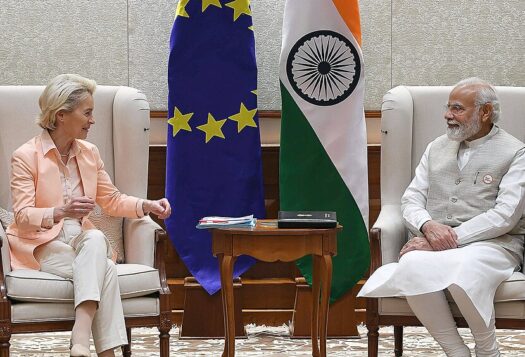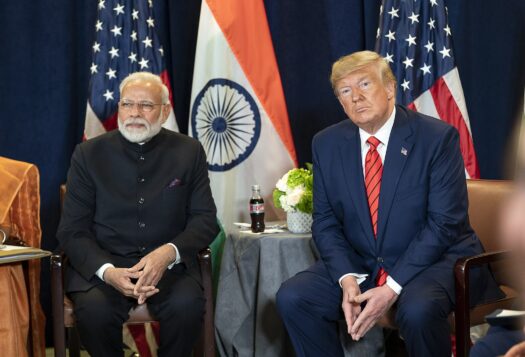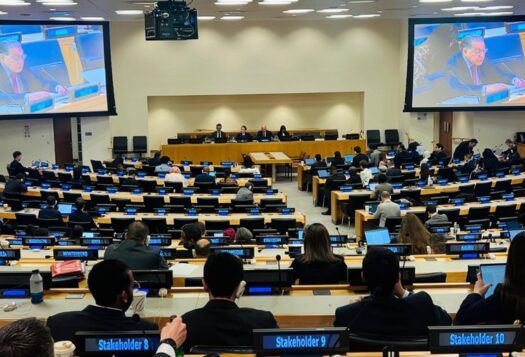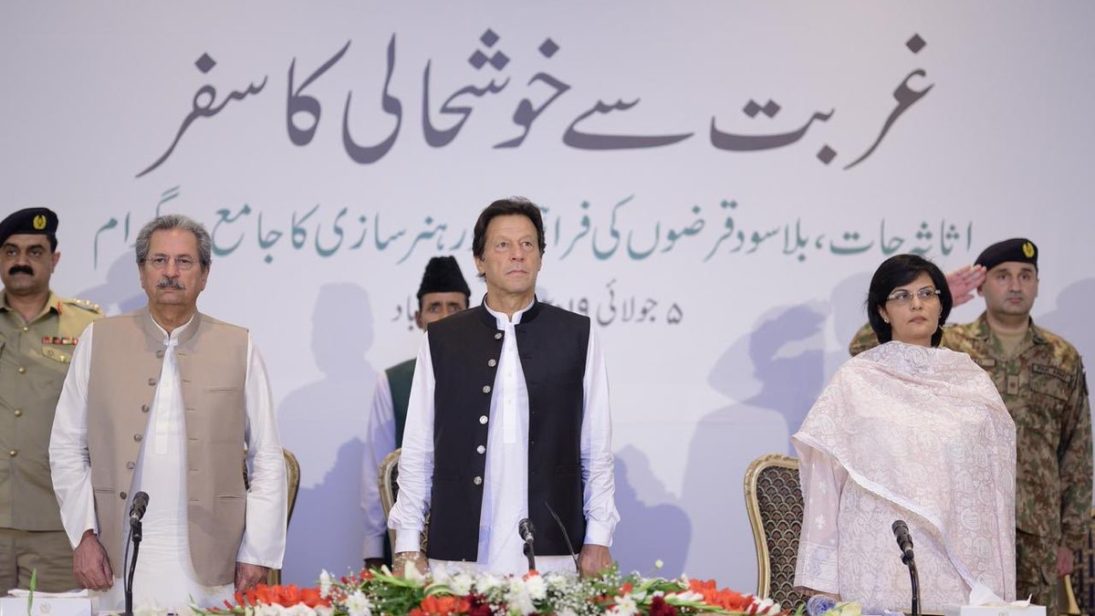
Pakistan’s Prime Minister Imran Khan along with a delegation of high-level Pakistani government and military officials will visit the United States next week to meet with U.S. President Donald Trump. According to the White House press statement on the visit, both leaders will discuss a range of issues from counterterrorism and defense to energy and trade, with the aim of “creating the conditions for a peaceful South Asia and an enduring partnership between our two countries.” The statement may initially appear incongruous given ongoing strains in the relationship. However, forward movement in the Afghan peace process, Pakistan’s crack downs on militant leaders, and Washington’s designation of a secessionist Baloch group, the Balochistan Liberation Army (BLA), as a terrorist organization have created new breathing space for the relationship to progress during Khan’s visit. The visit, which is likely to be marked by extensive deliberations on the ongoing Afghan peace process and its outcomes, Pakistan’s ongoing counterterrorism efforts, and opportunities to improve economic relations, may not lead to a major breakthrough in U.S.-Pakistan relations. Rather, its purpose is to turn the page in the relationship from counterproductive tensions to productive cooperation.
Cooperation Over Afghanistan
Washington recently shifted its focus from pushing Pakistan to act against militants to seeking its help in facilitating a peace process with the Taliban. As a result, Pakistan has since played the role of arranging direct talks between the Taliban and the United States.
The situation in Afghanistan has been the key determinant of the trajectory of this on-again, off-again relationship between Washington and Islamabad. Ties between the two countries sharply plummeted after Pakistan was critical of President Trump’s South Asia Strategy speech in August 2017, which condemned Islamabad for its alleged support to militants operating out of Afghanistan. However, Washington recently shifted its focus from pushing Pakistan to act against militants to seeking its help in facilitating a peace process with the Taliban. As a result, Pakistan has since played the role of arranging direct talks between the Taliban and the United States.
One of Pakistan’s moves to expedite talks was to release Afghan Taliban founder Mullah Baradar from custody. Pakistan also joined the trilateral talks between Russia, the United States, and China to urge the Taliban to agree to a ceasefire and directly talk with the Afghan government. The three countries welcomed Pakistan’s participation in the consultations and recognized the importance of the country’s involvement for peace in Afghanistan. The desire for regional stability led to Afghan President Ashraf Ghani’s visit to Pakistan last month, during which Khan reiterated his refrain that peace is the key to economic prosperity while committing to extending support towards an Afghan-led and Afghan-owned peace process. This recent goodwill bodes well for the upcoming meeting between Imran Khan and President Trump. Against this backdrop, the communication gap on the Afghan question during Khan’s upcoming visit is likely to be minimal. President Trump’s recent calls for a political settlement to the Afghan war are likely to resonate well with Khan, benefiting both countries.
The discussions on Afghanistan are likely to be comprehensive owing to the inclusion of Army Chief Gen. Qamar Javed Bajwa and intelligence head Lt. Gen. Faiz Hamid Khan in the visit to Washington. In addition to the meeting between Trump and Khan, there is also expected to be another meeting between Pakistan’s political and military leadership and their American counterparts. Given the military’s centrality in managing the security dimensions of any agreement in Afghanistan, both Gen. Bajwa and Lt. Gen. Faiz Hamid are likely to share Pakistan’s security concerns of Afghan soil being used as a haven for terrorism by groups like Jamaat Ul Ahrar and Tehreek-e-Taliban Pakistan that have previously targeted Pakistan—something Washington and Islamabad have a joint interest in. With Khan likely to meet with the Taliban after his trip to Washington, the Trump administration may call upon him and the military leadership to accelerate Pakistan’s efforts to push for a ceasefire and perhaps for direct talks between the Taliban and the Afghan government.
Delivering on the second demand would be difficult due to Pakistan’s contestable clout over the Taliban. Islamabad has said that the onus of bringing the Taliban to the table is not only on Pakistan. Due to the fact that the United States is pinning its hopes on Pakistan to give an impetus to the peace drive, one possible fear is that if the process ruptures and violence continues, the United States could turn against Pakistan and blame it for duplicity.
Doing Enough on Terrorism
Afghanistan will not be the only item on the agenda. As a strong proponent of Pakistan-U.S. relations based on mutual respect and benefit, Khan is likely to attempt to convince the United States that Pakistan is cracking down on proscribed terrorist outfits. Of late, persuading the international community of its alleged “no good or bad terrorists” policy has been a particular focus for Pakistan, which is trying to avoid being placed on the Financial Action Task Force (FATF)’s “blacklist” for terror financing later this year (a decision over which, Pakistan has argued, the United States and India have disproportionate sway). In recent testimony before the House Foreign Affairs Subcommittee for Asia, the Pacific, and Nonproliferation, Assistant Secretary of State Alice Wells stressed that Washington wants Pakistan to follow through on its pledges to act against militants.
Since his election, Khan has been unequivocal in articulating Pakistan’s zero tolerance policy for terror groups using Pakistani territory to carry out attacks. Committing itself to implementing the National Action Plan and UNSC 1267, Pakistan under Khan’s tenure has taken a hard line against banned organizations and individuals. In arresting Lashkar-e-Taiba (LeT) chief Hafiz Saeed for terror financing this week, Pakistan demonstrated its seriousness in fulfilling its commitment to its policy to Washington. However, there is some indication that the United States is beginning to be satisfied by Pakistan’s actions, with Trump in a recent tweet reacting positively to the arrest of Saeed. The United States would likely ask Khan to sustain this hard-line approach in order to amplify a significant change in policy.
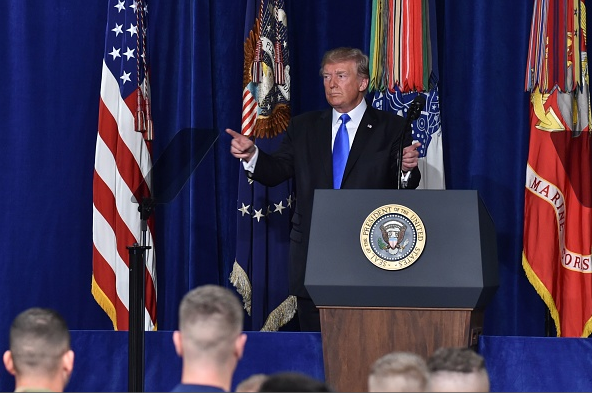
Enhancing the Economic Side
Khan may try to focus on the economic aspect of the relationship, which has long been off the agenda between the two countries. As a country in the midst of an economic crisis, Pakistan would welcome closer economic ties with the United States as it tries to turn around its economy by increasing exports and foreign investment. This approach has been largely successful as countries across the Gulf (Saudi Arabia, Qatar, and UAE) and Malaysia and China have expanded their economic investments in Pakistan since the spring. Khan may urge the United States to look at opportunities to invest in Pakistan as well. Ever since Pakistan’s new government assumed power, American companies like ExxonMobil and Cargill have expanded their presence in the Pakistani market. Khan will look to draw attention of the U.S. corporate sector towards his country’s improved security environment and Ease of Doing Business index.
In addition, Pakistan has liberalized its visa regime, increasing the ease with which U.S. business people can acquire Pakistani visas on arrival. However, given Trump’s transactional approach to trade, Pakistan is unlikely to receive many concessions on expanding bilateral trade. Nonetheless, at this stage the idea is to get the ball rolling rather than expect a major leap.
Structural Impediments Overruled byTactical Gains
Insofar as this visit is concerned, long-term challenges between Pakistan and the United States can be set aside in order to focus on more immediate issues that have strained ties between the two countries.
A host of structural factors make turning a page in U.S.-Pak relations difficult at this time. The evolving architecture in the region is increasingly driven by competition between China and the United States. Washington’s policy documents label Beijing a revisionist power that is a major challenge to the security of the United States. Additionally, India is central to the United States’ efforts to balance China in the region. Pakistan, being China’s partner in its gargantuan Belt and Road Initiative, cannot claim to be impervious to these stark regional dynamics, especially when the theater of competition is shifting towards the Indo-Pacific. Pakistan’s closeness to China, in conjunction with increased Washington-New Delhi cooperation, could potentially impede U.S.-Pak relations. However, insofar as this visit is concerned, these long-term challenges can be set aside in order to focus on more immediate issues that have strained ties between the two countries. As a result, high-level interactions will likely be confined to the tactical and operational matters of the Afghan peace process, counterterrorism, and economic relations.
That said, the recent goodwill between Islamabad and Washington has created a pliable environment under which both President Trump and Prime Minister Khan can directly communicate and work on pulling off incremental successes. Whether both countries can navigate troubled waters or look beyond Afghanistan will largely depend on how Khan fares in convincing the president that his proclamations and actions are in harmony with each other.
***
Image 1: PTI via Twitter
Image 2: AFP Contributor via Getty
